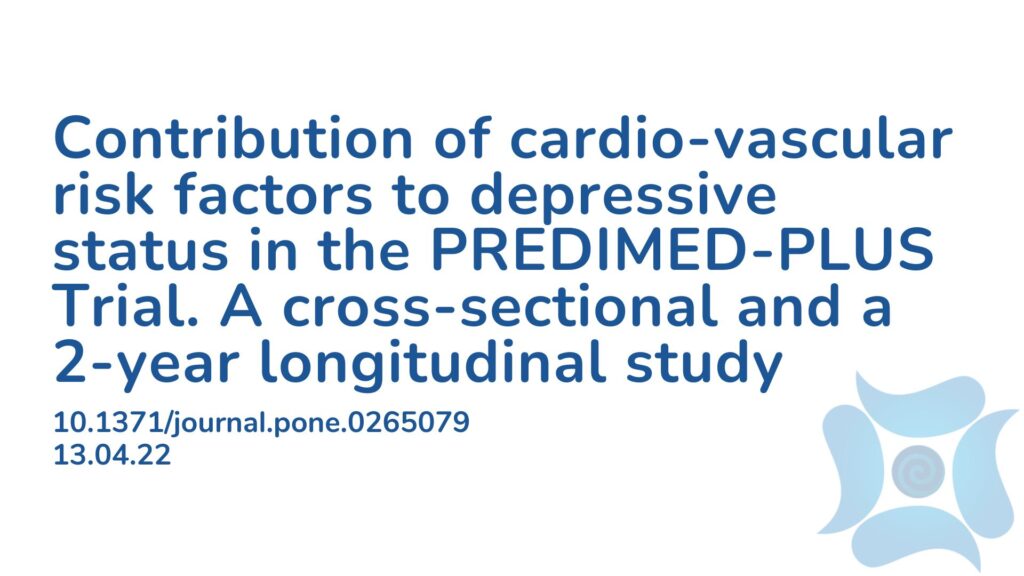Summary: Cardiovascular disease (CVD) and depression have shown to be closely related in literature, due to common risk factors such as inflammation and oxidative stress. The aim of the study was to determine the association between cardiovascular risk factors (CVRF) and depression in a population aged 55–75 years with metabolic syndrome (MetS). The study participants were both men and women, either overweight or obese, and suffering from MetS. Participants with any baseline presentation of cardiovascular disease, depression or any endocrinological and neurological diseases were excluded from the study. The results concluded that improving cardiovascular health could prevent the onset of depression in the elderly. In Australia it is estimated that 10-15% of people in this age cohort experience depression, and for those living in residential aged-care the rates of depression are much higher at 35%. Incorporating cardioprotective lifestyle and dietary interventions into preventative and treatment protocols for depression could have beneficial clinical outcomes, as well as a much needed broader understanding of its risks and contributing factors.
Abstract:
Background: Cardio-vascular disease and depression are thought to be closely related, due to shared risk factors. The aim of the study was to determine the association between cardio-vascular risk (CVR) factors and depressive status in a population (55–75 years) with metabolic syndrome (MetS) from the PREDIMED-Plus trial.
Methods and Findings: Participants were classified into three groups of CVR according to the Framingham-based REGICOR function: (1) low (LR), (2) medium (MR) or (3) high/very high (HR). The Beck Depression Inventory-II (BDI-II) was used to assess depressive symptoms at baseline and after 2 years. The association between CVR and depressive status at baseline (n = 6545), and their changes after 2 years (n = 4566) were evaluated through multivariable regression models (logistic and linear models). HR women showed higher odds of depressive status than LR [OR (95% CI) = 1.78 (1.26, 2.50)]. MR and HR participants with total cholesterol <160 mg/mL showed higher odds of depression than LR [OR (95% CI) = 1.77 (1.13, 2.77) and 2.83 (1.25, 6.42) respectively)] but those with total cholesterol ≥280 mg/mL showed lower odds of depression than LR [OR (95% CI) = 0.26 (0.07, 0.98) and 0.23 (0.05, 0.95), respectively]. All participants decreased their BDI-II score after 2 years, being the decrease smaller in MR and HR diabetic compared to LR [adjusted mean±SE = -0.52±0.20, -0.41±0.27 and -1.25±0.31 respectively). MR and HR participants with total cholesterol between 240–279 mg/mL showed greater decreases in the BDI-II score compared to LR (adjusted mean±SE = -0.83±0.37, -0.77±0.64 and 0.97±0.52 respectively).
Conclusions: Improving cardiovascular health could prevent the onset of depression in the elderly. Diabetes and total cholesterol in individuals at high CVR, may play a specific role in the precise response. International Standard Randomized Controlled Trial (ISRCTN89898870).
Article Publication Date: 13.04.22
DOI: 10.1371/journal.pone.0265079




